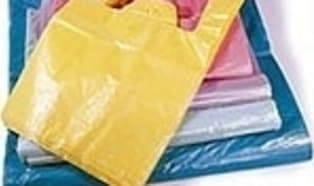
India imposed blanket ban on plastic bags
The local government of India’s capital, Delhi, has imposed a blanket ban on the manufacture, sale, storage and use of plastic bags in the capital city, starting 4 April.

The local government of India’s capital, Delhi, has imposed a blanket ban on the manufacture, sale, storage and use of plastic bags in the capital city, starting 4 April.

After seven years of litigation, Battenfeld-Cincinnati (Foshan) Extrusion Systems Ltd., the leading supplier in extrusion machinery industry in China, finally won its intellectual property rights case against Donghua Machinery in 2010.

With the revised Waste Framework Directive due to come into force on 12 December 2010, EU Member States are busy planning how to deliver the requirements set out in the directive.

The European Union (EU) Council of Ministers has passed rules further restricting the marketing and use of cadmium in PVC because of health and environmental concerns.

Italian plastics processor association Unionplast has failed in an attempt to have new legislation banning non-biodegradable plastics shopping bags declared illegal.

An Australian university has banned the sale of water in PET bottles on its campus. The University of Canberra (UC), in Bruce, a suburb of Canberra, will eliminate an estimated 140,000 PET bottles from being sold annually.

Another European country has revealed it intends to introduce a total ban on regular plastic shopping bags, prompting a switch to biodegradable bags by 2013.

Based on EuCIA sources, representatives of the EU27 Member States provisionally voted last week on the European Commission proposal for definitive anti-dumping duties on glass fibre originating in China.

Following the announcement that Italy is to implement a ban on shopkeepers handing out plastic bags after their current stocks run out, the UK lobbying group CBC says the move contravenes EU Law, will lead to greater environmental impacts as people switch to heavier alternatives, and by giving preference to degradable bags, will hit plastic recycling rates and increase greenhouse gas emissions.

In 2011 Italy imposed ban on single-use PE bags. We publish an article written by Croatian scientist Igor Čatić. Author is a retired professor of the Faculty of Mechanical Engineering and Naval Architecture of the University of Zagreb. His article concerns polyethylene packagings and ban imposed by the Italian government.

The Carrier Bag Consortium (CBC) has hit out at the Italian government’s ban on shopkeepers handing out plastic bags after their current stocks run out.

American Samoa will make it illegal for stores to hand out plastic bags once a new law takes effect early next year.